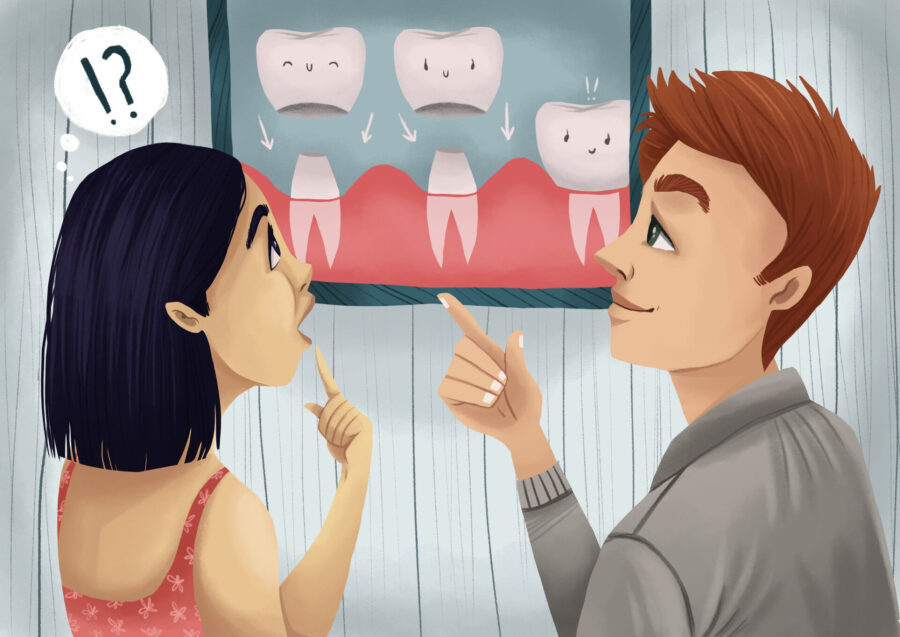
Hearing you need a dental crown might give you pause. Maybe the tooth doesn’t hurt, or maybe it feels just fine. So, do you really need that crown—or is it something that can wait?
At Corvallis Dental Group, Dr. Jason Thomas Greyslak and Dr. Rose Greyslak help patients make informed choices based on facts, not pressure. Crowns aren’t suggested lightly, and there’s usually solid reasoning behind the recommendation.
Why Dentists Recommend Crowns
A dental crown is used when a tooth is too damaged to be fixed with just a filling. Maybe there’s a crack, a large cavity, or a previous filling that’s failing. In some cases, a crown is also placed after a root canal to protect the tooth.
When too much natural tooth is missing, a crown provides strength and helps prevent further breakage. That’s especially important for back teeth that take a lot of pressure when chewing. For cracked teeth, placing a crown can help stop the crack from spreading—especially into the root, where damage is harder to repair and may lead to extraction.
It’s Not Guesswork—It’s Based on Evidence
Dentists use a mix of visual exams, X-rays, and sometimes special tools to assess how much tooth structure is left. Digital X-rays, intraoral photos, and 3D scans show damage that can’t always be seen with the naked eye. These tools give dentists the ability to share the problem with you—so you can see exactly what’s going on.
If the damage is deep or widespread, placing another filling could actually make the tooth weaker. In those cases, a crown is the longer-lasting, more stable option.
Dr. Jason Thomas Greyslak and Dr. Rose Greyslak also consider things like your bite, the tooth’s location, and how well a restoration is likely to hold up over time. Their goal is to recommend a solution that avoids bigger problems down the line.
Honest, Evidence-Based Dental Care at Corvallis Dental Group in Corvallis, OR
At Corvallis Dental Group in Corvallis, the approach is simple: every recommendation should have a reason. Dr. Jason and Dr. Rose Greyslak take time to explain why a treatment is suggested and what other options may be available.
If you’ve been told you need a crown—or you’re just not sure what to do—schedule a consultation today. They’ll walk you through the evidence, so you can feel confident in your next step.
Contact Us
Image from Authority Dental under CC 2.0








